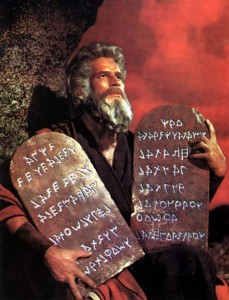My adaptation of John’s Gospel, The Gospel of Pure Human Kindness, began as an experiment — by giving Jesus a narrative name that matched a major aspect of His essence (much as the name given Him by the Angel Gabriel identified His mission and needed no translation for those He walked among) would the message in the Gospel story be enhanced?
Not only was the answer a big affirmative “Yes!” — but just the exercise itself gave me a completely new perspective on the God in whom I had come to believe in four decades before. By focusing on what the “Beloved Apostle” had endeavored to tell us were the actions and attitudes of the One who had revealed Himself firsthand to young John as the Only Begotten Son of God, the Word of God made Flesh, the Way the Truth and the Life, I was getting a new glimpse of the Creator and Father of all. And He — who chided Philip into understanding that “… if you have seen me you have seen the Father” — is much different than the way He is being depicted by many — and perhaps most — modern Christian theologians, preachers and Bible scholars.
The way He dealt with sinfulness in the Gospels belies most modern conventional thinking on the matter. Neither a woman caught in the act of adultery and dragged kicking and screaming to His feet nor a man paralyzed from birth who was carried spontaneously by four men onto the roof of the house Jesus was teaching in and lowered to His presence by ropes did anything to get there. Nor did either express any remorse for or even a desire to be forgiven of their sins. Yet both went on their way justified — both healed emotionally and the latter physically. No preacher I have ever heard treats sin so lightly.
Putting the Gospel tales into their historical context, the land of Judea had become a vassal state of the pagan Roman Empire. Zacchaeus was a Jew who was collecting taxes for these Gentile crooks and was a crook himself, cheating his own people. Yet when all he did was to climb a tree to get a better look at the young Galilean rabbi as He passed by, Jesus told this conniving slime ball that it was his lucky day — that he was going to host a dinner in Jesus’s honor that night. Zaccaeus swore on the spot that he would sell half of his belongings and use the proceeds to pay back those he had swindled. Zaccaeus became Matthew the Apostle, the writer of the first Gospel. Juxtapose this with the rich young prince of Judah, who had kept the law meticulously all his life. When he asked Jesus what he must do to become a disciple, Jesus told him that he lacked just one thing: “Sell all your belongings and give the money to the poor, and then come and follow me.” The Gospel writer reports, “The man went his way very sad, because he had many possessions.” Zaccaeus the cheat in cahoots with the pagan, murderous Romans gave up only half — the saintly but rich Jew had to give up all.
The Samaritan woman also did nothing to confess or undo her adulterous ways — a simple reading between the written details exposes her as also trying to seduce the Lord Himself. But she was the first one to whom He freely and openly revealed who He was and the true nature of His mission and she instantly became the most successful evangelist of all the Gospel stories.
It appears in the light of these narratives that Jesus — and by extension, God the Father of All — doesn’t need or require any special gyrations or genuflections — verbal, physical or emotional — to deliver His kind loving mercies. We just need to be made available.
But there is one attachment that can stymie the process.
“One thing you lack.”
It would seem that our entire society lacks this one thing: “A man can’t have two masters — you can’t serve God and money.” But we are all forced into the position of serving money. In our society you can’t do anything without money. And it would seem that the more you have the more you need. This is the first civilization on the face of the earth that has this malady. It is also the first to question en masse the existence and/or the all importance of believing in and serving God. Today for most God is a side issue — religion a marginalized institution. But money is center stage, top of the news, the all-powerful entity. With it you can do anything — without it nothing.
And yet it doesn’t really exist. It has become an open secret that the money supply increases by the incurring of personal and corporate debt. Our money is no longer backed by a valuable — and real — commodity such as gold or silver. Supporting it all most tenuously are millions of individual promises to pay — called promissory notes.
But beyond this appalling factoid, the cash and coin and the numbers on account statements only mean something because we all believe they do. Beyond human imagination money has no reality — which means it has no reality at all.
It is like “The Emperor Has No Clothes” — only it is “The Rich Man Has Nothing of Real Value” for our purposes here.
A tree exists — no tree has ever fallen in a forest with no one to hear it, despite the gloating of French existentialists when they asked their infamous and stupid question. Bugs and birds and squirrels and monkeys have ears too. And sound does not need an ear to be sound, since sound is made of waves traveling through the air. If a tree fell on the moon no one would hear it because it would not have made a sound — no air, ergo no sound waves. But the ground would shake and the dust would rise. I could keep going — but I won’t. The tree is real. We can change it’s form and make it into a table and chairs — we can burn it, releasing energy by the rapid oxidation process — but the totality of its mass remains, converted into gases and ash. This is the way of all created reality.
We can make a tree into pulp and use it along with other real elements to fashion a dollar bill. We can manipulate the ink to replace George Washington’s image with that of Andrew Jackson and — as if by magic — it is now worth twenty George Washingtons. But if you drop both a dollar bill and a bill of any other denomination on the moon there would be no difference in the effect — except maybe that the astronauts might be more likely to claim the one with the higher amount printed on it.
A space monkey would pay little attention to either.
Money and a Mustard Seed
“If you had faith the size of a mustard seed you could tell this mountain to cast itself into the sea and it would obey you.” But with money it is not so simple — even for God. If He created money out of nothing in answer to our prayers it would be counterfeit — unless He also convinced the Federal Reserve to update its records for the new serial numbers. If he mysteriously transferred some from someone else’s account into yours and you spent it you would be guilty of larceny — since only God would be saying it was now yours and the people who balance the bank’s books don’t listen to God’s spoken decrees when they do their jobs.
To get more money in our pockets even God has to convince other people to do something. And people are notorious for their disobedience of Divine ordinances. Many prayers went unanswered with the rich young Jewish ruler’s inability to detach himself from his wealth for Christ’s sake.
The truth is that the only real property that God had no hand in bringing into existence and therefore has no rightful claim to is money — we created it and it all belongs us. Well — some of us.
The value system of Heaven, it would seem, is based on another commodity — something called “Virtue.” By definition we are gifted with virtues — made up of specific “talents” that we must nurture to perfect and retain. It is the Power of Good. But here on earth those of us who display such talents in athletics, music or writing ability or even in strong interpersonal character traits are not deemed successful unless we get rich by them. The last example is what actors sell to us in the media marketplace. Even the most successful religious renunciates in society’s eyes are the ones who bring in the most money for their religious orders and ministries. And it is quite a public high wire act that these individuals perform amassing wealth and fame while attempting to not lose these talents. The vast majority don’t make it for long — at least by human standards. The few that do are the celebrated — the human idols that we heap with praise and glory, feeling as if we have some secret intimacy with them. But just like the money they have — that has passed through each of our hands, at some point — our relationship with these “stars” is phantom.
Money is our God. The Golden Cash Calf is King and publishers and movie moguls even get rich on the Tablets of Moses and the story of Jesus of Nazareth. Fundamentalists and Evangelicals are waiting for the coming of the Antichrist to deceive the inhabitants of the earth with great signs and wonders – they’re waiting for the “Abomination of Desolation” to be set in the “Holy of Holies” where only God can sit without damnation being brought down upon the world. But these things have already occurred. We see money healing the sick, raising the dead, letting me type these words and then instantly have them published to every nation. Money has split the atom, put people on the moon, has let us look at the far reaches of the Universe. And how long does it take before we turn from realizing that we have awakened to the golden light of a new day that we must again bow to the Money God — the Unrighteous Mammon — and do whatever it bids us do to get our meager daily ration, forgetting Who it is that made us and sustains us? Money sits on the Throne of God on Earth right now.
The atheists’ argument is that believers in the Loving Almighty God of Heaven just believe because others do and that gives them comfort and security. And then the atheist looks up his bank balances online and feels comfort and security over numbers in cyberspace that only mean anything because we all believe that they do.
I see the connection.
Don’t you …?



{ 2 comments… read them below or add one }
Interesting . To me there is a correlation between the concept of money and God . In my opinion we do serve a god, while serving god you have it all and if you do not serve him you have nothing. Realizing having everything is really nothing. I enjoyed all of the blogs. Thank you for the insight. I get it.
Thank you, Kim. It is really so simple that it escapes us.
It used to be that the advertising programs of car insurance and credit card companies were like religions: “You’re in good hands with Allstate” –“Like a good neighbor State Farm is there” — “Visa — it’s everywhere you want to be.” But that has worn thin so now they are all trying to be funny. Why? Because there is nothing Godly or funny about any of it.